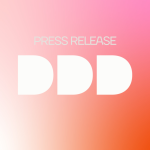Malta is an established gaming hub. In this type of highly regulated environment, how can compliance move beyond being seen as just a cost centre to becoming a driver of competitive advantage?
I have always viewed compliance as a strategic asset to a business rather than a cost centre. To enter any regulated market, a company requires either a licence, certification, or both. In a hub like Malta, the operators and suppliers who build credibility with regulators and certification laboratories, move faster and face fewer surprises. That credibility comes from having a proven track record in the industry, being proactive and sharing information openly, anticipating questions, and demonstrating consistency across markets.
From my time in both B2C and B2B, I have seen how a strong compliance position makes you more attractive to business partners. When you have multiple licences, certifications, clean audits, a disciplined approach to responsible gaming, and transparent risk management, you’re not just protecting your company – you’re giving commercial teams something to sell. For me, that’s where compliance becomes a competitive advantage: it opens doors that might otherwise remain closed.
With tightening oversight and international regulators scrutinising cross-border gaming operations, how can a robust compliance framework enhance trust and market expansion opportunities?
A strong compliance framework does more than keep you on the right side of regulators, it builds trust. As mentioned previously, I have always viewed compliance as a strategic asset. By aligning early with evolving regulatory expectations, we create fewer barriers to entry when applying for new licences. Regulators see a company and compliance team with a proven track record having obtained over 10 licences and live in over 30 regulated markets through either licensing or certification. Furthermore, regulators see that we already meet or exceed their standards, which shortens approval timelines. Partners see a business that won’t expose them to unnecessary risk, which strengthens commercial relationships.
This robust framework also provides structure for cross-border challenges. Standardised policies, central oversight, and strong local expertise mean we can adapt quickly without reinventing processes each time a new jurisdiction tightens requirements. That consistency signals reliability.
What strategies can you use to embed compliance into product development and customer experience, so it supports growth and innovation?
Embedding compliance into product development and customer experience starts with mindset. If compliance is seen as a blocker, it slows everything down. If it is built in from the start, it enables faster launches.
Three strategies help:
- Early involvement. Compliance teams should be involved from the concept stage, not just review at the end. This prevents costly redesigns and ensures new features meet regulatory standards before development resources are spent.
- Clear rules translated into design. Regulations can be complex, but product teams need them in simple, actionable language. Requirements must be transformed into design checklists and user stories so developers know exactly what is expected.
- Customer-first compliance. Good compliance should improve the player experience – clearer terms, safer play tools, smoother payments.
When compliance is integrated this way, it stops being a gatekeeper and becomes a strategic growth partner. It gives regulators confidence, customers trust, and product teams the freedom to innovate within safe boundaries.
How can effective risk and compliance governance create strategic value in key stakeholder relationships with regulators, banks, and payment providers – who often view gaming business as high-risk?
Effective risk and compliance governance is not just about managing downside, it is about creating strategic value in relationships that are critical to the business.
For regulators, strong governance shows that we take accountability seriously. It demonstrates that we are proactive in identifying risks, transparent in reporting, and consistent in applying standards. This helps shift the relationship from supervision to collaboration, making it easier to enter new jurisdictions and maintain licences.
For banks and payment providers, governance is about de-risking. Gaming is often viewed as high-risk due to fraud, money laundering, and reputational concerns. When we can evidence clear controls, independent audits, and ongoing monitoring, we change that perception. It gives providers confidence to support us and even improve terms.
The ability to show regulators, banks, and payment partners that we operate at a high standard is what unlocks access, strengthens partnerships, and ultimately supports growth.
As financial crime, AML, and responsible gaming obligations evolve, how can compliance analytics and data-driven insights be transformed into business intelligence for strategic decision-making?
Compliance data is often treated as a defensive tool, but in reality, it can tell the business where to grow. Transaction monitoring, for example, can highlight shifts in player behaviour or payment flows across geographies. That data doesn’t just mitigate risk, it helps identify where the business should allocate resources.
The same applies to responsible gaming. Tracking how players use safer gambling tools tells us not only whether we’re meeting obligations, but also how different markets respond to certain interventions. Those insights are valuable for marketing, retention, and product design. If you frame it correctly, compliance analytics becomes a form of market intelligence.
How do you measure the long-term value that compliance brings to a gaming company’s brand reputation, and what KPIs would you highlight to demonstrate that value at the board level?
I focus on measurable outcomes such as how quickly we secure new licences, how quickly our product gets certified, how often we pass audits on the first attempt, and how many findings we close without escalation. Obtaining the Malta Gaming Authority’s ESG seal also demonstrates our commitment to corporate governance and sustainability. I also highlight how strong governance translates into banking stability – because without payment processing, there is no business.
When compliance is done well, the company doesn’t just avoid fines, it earns the right to grow faster and more sustainably. That’s why I present compliance not just as a safeguard, but as a driver of long-term brand value.

Joshua Strydom is the Chief Compliance and Risk Officer at Yggdrasil, a leading iGaming content provider based in Malta. With extensive experience across global gaming and fintech markets, he has built and led high-performing compliance teams while managing regulatory, licensing, technical, AML, governance, risk, and ESG frameworks. Joshua has worked across nearly every major gaming jurisdiction, helping companies navigate complex regulations and align with evolving industry standards. Passionate about shaping compliance as a strategic business driver, he focuses on market entries, building frameworks that balance innovation, sustainability, and regulatory integrity. He is a qualified Chartered Accountant, lawyer and holds a professional qualification from AGRC, accredited by the London Institute of Banking & Finance.







